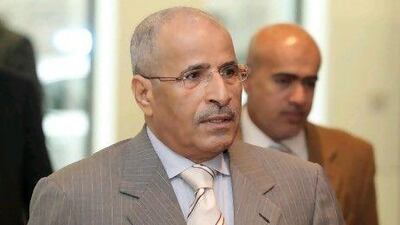Opec has pushed up its pumping ceiling for the first time in three years, ending an acrimonious standoff between members and sending the price of oil down by the most in almost a month.
What's the alternative?
Energy Join The National as it explores alternative to fossil fuels. Learn more
Ministers meeting in Vienna yesterday reset their production target at actual pumping levels of 30 million barrels per day (bpd) and shepherded Iraq, which had been exempt from a quota since the 1980s, back under the ceiling.
"We have an agreement to maintain the market in balance," Rafael Ramírez, the energy minister of Venezuela, told reporters after the meeting.
The consensus was a win for Saudi Arabia, which had led Gulf nations in pushing for an increase at the group's last meeting in June but was rebuffed by a bloc of seven members led by Iran. After discussions broke down, Saudi Arabia opted unilaterally to raise its production to address oil prices that had risen as high as US$126 after the loss of Libyan supply this year. The Saudi move antagonised price hawks.
"For now they patched things together," said Samuel Ciszuk, a consultant at KBC Energy Economics.
"Most Opec members, what they really don't want is another recession spreading," he said.
Yesterday, West Texas Intermediate, the US benchmark, declined by 3.3 per cent to $96.79.
Excluding Iraq, members had been pumping about 2.8 million bpd in excess of their former output limit of 24.8 million bpd.
"We're not going to bypass it, we're going to adhere to it," Abdalla El Badri, the Opec secretary general, said of the new target.
Members said the countries that had increased production during the shortage of Libyan oil would have to reduce their pumping to accommodate the North African nation's recovering output. Libya is already producing 1 million bpd and could reach its prewar capacity of 1.6 million bpd by next year, said Mr El Badri, Libya's former top oil official.
The inclusion of Iraq in the ceiling beats Baghdad's own timetable of 2014 for returning to the quota system and marks the country's return as a major oil producer. Iraq, which was crippled by years of war and western sanctions beginning in the 1980s, has brought pumping back up to 2.7 million bpd and is targeting a rise to 4.5 million bpd within three years.
The consensus at yesterday's meeting could be short-lived, with Iraq's quota undecided and given the prospect of an economic downturn and erosion of oil demand. Opec last shifted its target in 2008, trimming production to halt a decline in oil prices driven by the global economic downturn.
"The tensions that we saw in Opec this year would reassert themselves if we saw any sharp declines in the oil price," said Caroline Bain, the senior commodities specialist at the Economist Intelligence Unit.

